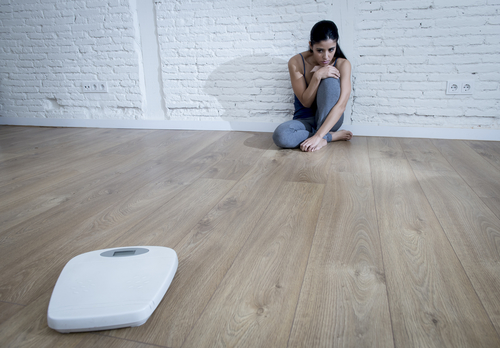The hardest part isn’t always admitting you need help. Sometimes it’s knowing where to turn once you do. Women often carry quiet battles that go unnoticed by the outside world—tending to families, careers, relationships—until addiction slips in under the weight of it all. There’s no single path that brings someone to the edge, and no one-size-fits-all way to walk back from it. But for many women, something shifts when they find a place that feels safe, grounded, and different from the chaos they’ve been trying to escape.
Next Steps
If you’re struggling with addiction, you don’t have to face it alone. At Casa Capri, we offer expert, women-centered care in a supportive and nurturing space—designed by women, for women. Our team is here to help you heal with purpose and connection.
Call our admissions team for a free, confidential chat—we’ll even check your insurance and estimate any costs upfront.
The Hidden Weight Women Carry into Recovery
Women don’t usually show up to recovery empty-handed. They bring shame, guilt, and responsibility, stacked like invisible bricks in a backpack they’ve been wearing for years. There’s the pressure to be everything for everyone—nurturing mother, loyal partner, dependable friend—and when addiction creeps in, it often grows out of the cracks in all that giving. Whether it starts with a glass of wine at night to unwind or pills to push through exhaustion, it can quickly become something much harder to manage.
What’s different for women is how hidden it can be. Society isn’t kind to struggling mothers or overwhelmed professionals, and many women keep their pain private until it nearly drowns them. By the time help feels necessary, they’re already wrapped in fear of being judged, of losing their kids, their jobs, or the respect of people who never saw the signs.
Why Faith Can Be the Turning Point for So Many
There’s something uniquely steadying about healing in a place where faith isn’t just tolerated—it’s central. Many women have tried other forms of recovery, from hospital detoxes to outpatient programs that treat symptoms but never quite reach the deeper roots. What they long for is a space that speaks not just to the mind and body, but to the heart and soul.
This is where Christian rehab centers can quietly change the entire conversation. It offers more than just therapy and medical support—it introduces grace into the healing process. Not the soft kind that glosses over mistakes, but the real kind that sees all the broken pieces and says, “You’re still worthy of love.” Faith-based programs tend to create a community where shame gets replaced with understanding and where relapse isn’t failure, but a reminder that progress is often messy.
These centers help many women rediscover not only a sense of purpose but a feeling of being deeply known—something addiction had stolen long before they ever reached out for help.

Breaking the Pattern of Isolation
One of the biggest barriers women face in recovery isn’t withdrawal or cravings—it’s isolation. When addiction becomes a secret, it also becomes something that separates. From children. From spouses. From best friends who once knew everything. And for women who have built their lives around holding things together, asking for support can feel like admitting defeat.
But healing often starts the moment that wall of loneliness cracks. In recovery communities built for women, there’s a kind of unspoken understanding. The stories may not be the same, but the emotions usually are. Women learn how to sit in their truth, even when it’s painful, and start building relationships based not on perfection, but on presence.
Group therapy, peer support, and shared spiritual practices become a lifeline. Slowly, the isolation begins to lift, replaced with connections that feel authentic and lasting. These relationships become part of the healing fabric—a reminder that recovery doesn’t have to be walked alone.

A New Way of Living That Actually Feels Good
Recovery isn’t just about stopping the substances. It’s about learning to live differently—to create a life that feels less like something you have to escape from. And that takes time. Women often have to rebuild their routines, their friendships, and their sense of identity from the ground up. They learn how to recognize triggers, yes—but also how to enjoy quiet mornings again, or laugh without needing a drink to loosen up.
They might start journaling, meditating, or walking outside before the sun is up. They notice the sound of their child’s voice again, or finally sleep through the night without waking in panic. These aren’t flashy milestones, but they are everything.
Finding your ways to wellness doesn’t mean fitting into a mold or following a strict formula. It means exploring what brings actual peace, what sustains your energy, and what reminds you that you are still in there—under the mess, behind the mistakes, beyond the pain. For many women, that might mean reading scripture again or praying out loud for the first time in years. It could also mean holding space for quiet and letting their faith speak softly instead of shouting.
Why Recovery Is the Start, Not the End
There’s a misconception that recovery means going back to the way things were before addiction. But the truth is, most women don’t want that. What they want is a life that finally feels honest. The version of themselves that came before wasn’t always whole either—it was often overextended, overwhelmed, and over it.
The beautiful thing about recovery is that it offers a chance to begin again, not as a punishment but as a gift. Women start to build a life they actually want to stay in, instead of running from. They learn how to say no, how to rest, how to be loved without having to prove anything first.
And maybe the best part? They begin to believe in themselves again—not because someone told them to, but because every day they show up, they prove it to themselves.
Conclusion
When everything falls apart, it’s easy to think it’s the end. But for many women, that collapse is actually the beginning of something far better than what came before. Not perfect, not easy—but real. Recovery isn’t about becoming someone new. It’s about finally coming home to who you’ve been all along.
Next Steps
If you’re struggling with addiction, you don’t have to face it alone. At Casa Capri, we offer expert, women-centered care in a supportive and nurturing space—designed by women, for women. Our team is here to help you heal with purpose and connection.
Call our admissions team for a free, confidential chat—we’ll even check your insurance and estimate any costs upfront.



